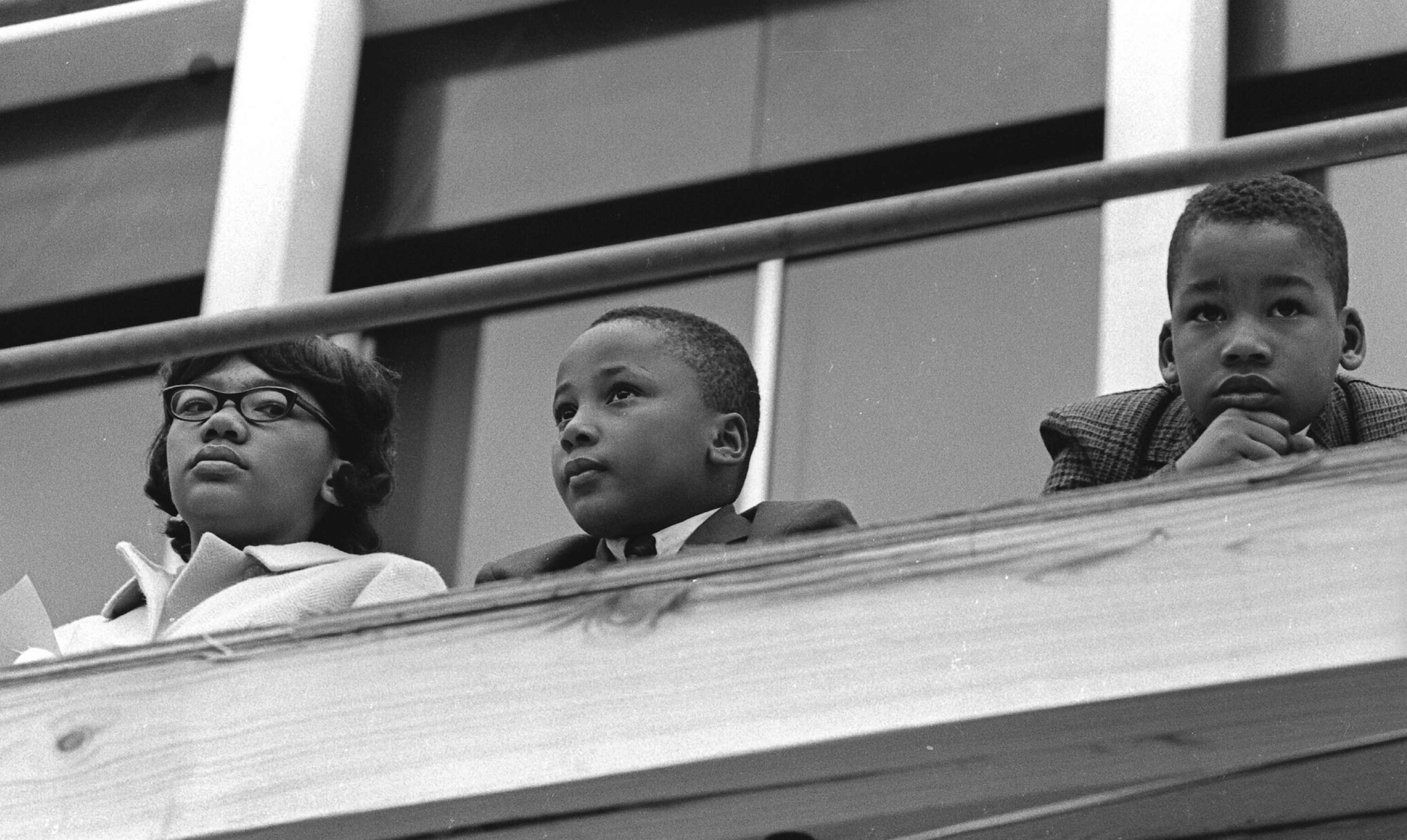March on Washington anniversary comes amid voting rights, affirmative action battles
ABC News spoke with organizers Rev. Al Sharpton and Martin Luther King III.
Martin Luther King Jr. said in his "I Have a Dream" speech 60 years ago that he dreamed "that my four little children will one day live in a nation where they will not be judged by the color of their skin but by the content of their character."
60 years later, his son Martin Luther King III says that day "has not yet arrived."
His wife and fellow civil rights advocate, Arndrea Waters King, said she can't help but reflect on the world in which King's granddaughter is living.
"A world in which the Voting Rights Act – the crowning achievement of the Civil Rights Movement – has been decimated. A world in which voting laws have been passed around the country making it harder to vote, not easier. A world in which history is being erased and censored from our world, a world in which her reproductive freedom in her lifetime has been erased," she told ABC News.

In August 1963, King and roughly 250,000 others walked in the March on Washington in one of the most notable events of the Civil Rights Movement.
A multicultural coalition of more than 100 groups will take over Washington, D.C., once again to honor the 60th anniversary of the march on Saturday, Aug. 26.
However, organizers say this isn't a commemoration of the march, but rather a continuation of the fight for civil rights and equality.

Civil rights leader Al Sharpton told ABC News that the issues faced by those who marched decades ago have taken new shape in the issues of today.
"I have only one grandchild, my grandson, four years old, growing up in a world where he'll have less rights than I," Sharpton said.
Issues of today
Sharpton read out a laundry list of calls to action to be made by demonstrators on Saturday, including hate crimes, voter suppression, reproductive rights, criminal justice and more.
This march comes amid the heightened "culture wars" being seen across the country.

In 2020, many in the country confronted the U.S.'s racial history and its continued impact on the nation today following the murder of George Floyd at the hands of police. Arndrea Waters King said she believes the backlash we're seeing now is in part because of the racial progress promised amid the reckoning.
"Once you started seeing everyone coming together and looking at diversity, equity and inclusion, that's when we started seeing -- in very recent times -- these rollbacks," said Arndrea Waters King.

Hate crimes -- motivated by bias against someone's identity -- have been on the rise in recent years, according to the FBI. The issues of discrimination against Black Americans in the policing and the criminal justice system too continue to be spotlighted by cases of police brutality.
Meanwhile, diversity initiatives in businesses and schools have come under attack, as well as the inclusion of race and other identities in education. Affirmative action in higher education too has been limited by the Supreme Court.
In some cases, the King family fears such efforts to restrict lessons on race could affect Martin Luther King Jr.'s legacy and the impact of the civil rights movement on future generations.
"It is said that a people that do not remember their history -- and maybe you could add, who do not know their history -- certainly are doomed to repeat the mistakes of the past," said King III. "We believe this is unconscionable."
Power in solidarity
Saturday's march will be led by civil rights organizers and Black leaders walking hand-in-hand with demonstrators from groups representing the diversity of the LGBTQ community, religious communities, immigrant communities, Native and Indigenous groups, AAPI groups, and more.
"When you think about the Civil Rights Movement ... the basis of the civil rights movement was the recognition of the interconnectedness of all of us as brothers and sisters, the interconnectedness of humanity," said Arndrea Waters King.

Organizers say the multicultural, diverse collection of groups is an important piece of the puzzle. Sharpton said that solidarity is vital to their mission -- equality for all.
"We can't have a segregated movement for freedom," Sharpton said.
King III, one of the four children Martin Luther King Jr., spoke of hoping for a future free from discrimination, and that as an adult he sees the impact of race almost everywhere: in housing, in business opportunities, and more. He hopes the march serves as a reminder of the long fight ahead.
"It is not to just criticize America, it is to say: 'we are better than this," said King III. "It really is about creating a system that works for all people and not just some."




